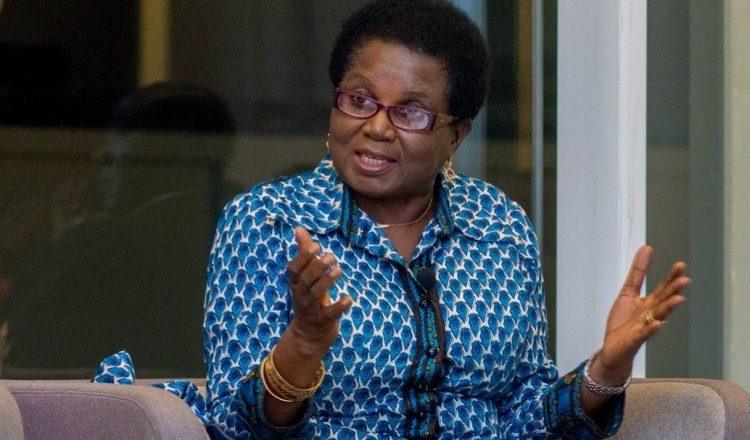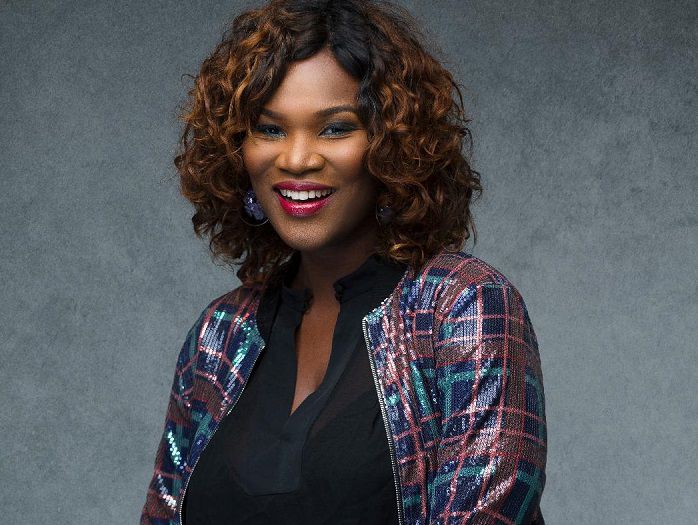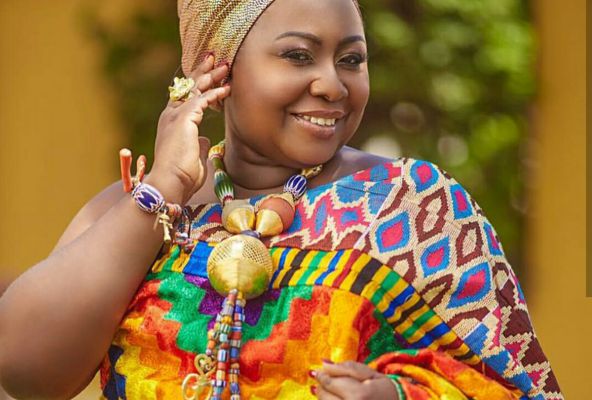
Counting on generation equality to realise women’s rights
On Sunday, March 8, the world celebrated International Women’s Day (IWD). This year is particularly special as it marks the 25th anniversary of the Beijing Declaration and Platform for Action adopted in 1995. It also marks five years since the implementation of the Sustainable Development Goals (SDGs) and the 20th anniversary of the UN Security Council resolution 1325 on women, peace and security.
Today, no country can claim to have achieved gender equality and girls everywhere are at risk of encountering violence.
Advertisement
In Ghana, 19 per cent of girls marry before their 18th birthday, one in three girls aged 15 to 19, that is 39 per cent in Ghana, has experienced sexual violence at some point in their lives and 22 per cent of girls aged 15 to 19 years do not go to school, or work or engage in social activities during menstruation.
On the theme: “Generation Equality: Realising Women’s Rights,” UNICEF and other UN agencies have been committed to the cause of girls and women; and have over the years supported communities to appreciate the role of women in all strata of society.
The IWD calls for action to accelerate gender equality. This involves girls and women taking an active role in this advocacy and stakeholders continuing to support an environment in which girls can raise their voices and thrive.
Below are short pieces from women who have distinguished themselves in supporting the advocacy ensuring that women are able to exercise their rights in all situations no matter their status in society.
Elizabeth Ohene
Back in 1975, we called it a dramatic breakthrough. I was thirty years old and being a female journalist was something that was considered news, when the first International conference on women was held in Mexico City.
We thought that the first world conference on women to coincide with International Women’s Year would change the world and bring women to an equal status with men.
The conference defined a World Plan of Action for the Implementation of the objectives of the International Women’s Year, and offered a comprehensive set of guidelines for the advancement of women through to 1985.
I still remember the excitement that we had and the feeling that women’s matters had become mainstream. I considered it my responsibility to find a female angle to every story that was to be published in the newspaper.
I had always been reluctant to deal with or be assigned to the Women’s Page of the newspaper I worked on, and I was not keen on Women’s Hour on the radio either. I argued loudly that things that concerned women should be discussed on every page of the newspaper and every hour of the radio and not consigned to a special page or special hour.
It is difficult to explain today, some 45 years later, the high hopes that 1975 conference gave us.
Five years later came the 1980 mid-decade world conference of the United Nations Decade for Women in Copenhagen. It aimed to review progress in implementing the goals of the first world conference, focusing on employment, health and education.
A Programme of Action called for stronger national measures to ensure women’s ownership and control of property, as well as improvements in protecting women’s rights to inheritance, child custody and nationality.
Then in 1985, the world Conference to Review and Appraise the Achievements of the UN Decade for Women took place in Nairobi. The conference’s mandate was to establish concrete measures to overcome obstacles to achieving the Decade’s goals.
By the time of the 1995 Beijing conference, which we called The Big One, I was tiring of it all. Yes, nobody now thought it was a big deal for women to wear trousers, and the girl child was being enrolled in school, even if she was more likely to drop out than her brother.
I felt the big dreams of 1975 had not been delivered. But the world managed to raise huge enthusiasm for the Beijing conference and all the big names went, and we dared to hope again.
Five years ago, that is, twenty years after Beijing, the UN made a review of the Platform for Action and came to the conclusion that not very much had happened. The report reckons that at the current pace, it will take 81 years to achieve gender parity in economic participation, and some 50 years to reach parity in parliamentary representation.
I am now 75 years old. I note that the UN is looking forward to 2030, where at least half of all parliamentarians, university students, Chief Executive Officers, civil society leaders and any other category, would be women.
I have run out of time. I am no longer counting on any Plan of Action. But I know things have moved somewhat, when someone tried recently to recruit me into a campaign to get the Boy Child to stay in school.
Anita Erskine

I was 16 and in awe. Something was changing in my life. Truth be told, I was not too young to understand what this change would eventually mean or for which purpose it would best serve, for that matter.
Five years prior, Nelson Mandela had been freed — an event that injected a sharp and rather peculiar excitement and that had birthed a sudden global reawakening for Africa’s unique pursuit for a refined meaning of independence.
Now that same excitement for me, had ushered in a strong era — 1995. I paid particular attention to what felt like a tide of change that seemed to be drawing closer to my young feet which were already in ardent search for a clear path to follow. I was 16 and very aware of my innate desire to build the unmistakable persona of a strong African woman.
Personal events had shaped me — such that now, I was free from fear, free from wonder and definitely free from worry about that unique voice I was nurturing and if it would indeed make a difference someday.
In 1995, I began to mould my strong and authentic sense of self. I was alive, young, excited and happy to see a major global event, that would seep deep into my consciousness and sew a seed of commitment to the global and urgent call to action to be a woman who could lead and change the world in the process.
For you to understand why 1995 was so impactful, you have to understand how 1992 changed my life and why it was such a pivotal year for me. My father - General E. A Erskine, had won
my superb admiration for losing so gallantly in the first elections of the Fourth Republic. I am not sure that the adults around me — friends, family, party elders, supporters and such — ever stopped to wonder how that experience would change the life of a 13-year old.
I observed, with wild and keen ambition, not only my father — but perhaps even more, my mother. I saw first hand, what it meant to be committed to a task that would inevitably change someone else’s life — regardless of the outcome. I was inspired by her firm mental strength and the blossoming idea of expanding her heart’s capacity to possibly accommodate an entire nation. The year 1992 gave me purpose.
Long before the phrase ‘Generation Equality’ was couched, a soldier in the army of women fighting for the meaning and benefits of equality was recruited. Me. In September 1995, I watched the intermittent news clips with unreserved admiration. This large collective of women from around the world and the special Ghanaian delegation led by the then First Lady, Nana Konadu Agyemang Rawlings, were charting a new path on which women would collaborate and work together to set a global agenda for gender equality. I framed those images and locked them firmly at the forefront of my consciousness and they have perpetually remained a personal reference point.
Over the last 25 years, my resolve to grow my voice in the global fight for gender equality has never wavered. It was birthed naturally, nurtured strategically and now it serves unapologetically.
My almost intentional drive for action towards the empowerment of women and girls no longer simply sits comfortably in my capacity as a broadcaster, but now lies in that personal vow I took 25 years ago — that wherever I went, whomever I met, whatever I did, I would stand tall, firm and grounded and state my mission.
Today, I am confident in where the march for gender equality is going. It is arguably slow but undoubtedly sure.
Today, I know that I can contribute in diverse ways. Most importantly, however, I remind myself consistently that for the world to make way for gender equality I must lay claim to embracing the notion that the task and the fight have only just begun and I am ready!
Gifty Anti

I am passionate about women’s empowerment, so I created a platform for people to listen to the feminine side.
Twenty five years ago, I would not have believed that I will be here empowering women. In spite of the fact that I was the last child among my siblings, in difficult times, I never gave up on my education even though I lived the whole of my life with my father.
I attended Mfantsiman Girls Secondary School at Saltpond, where I successfully completed my sixth form education. I had my early education at Tema Community 8 “Number 1” Basic School where I sat for my Common Entrance Examination in Form Two instead of Form Four.
Even though I never thought of becoming a journalist, I still wanted to achieve my dream of becoming a great personality in future.
The foundations of the brand Gifty Anti started some 25 years ago as a journalist with GTV.
My passion to create a platform that speaks for the rights of women started when I connected with Christabel King during my post graduate studies in UK. That encounter affirmed my purpose and resolve; and I founded GDA Media Ltd which produces ‘The Standpoint’ and for 12 years now, my dedication is to fight the cause of women by discussing topics that were hitherto not talked about.
Women suffer abuse, violence, isolation, depression and all kinds of ill but cannot voice them out because “nobody would listen”
Through The Standpoint TV programme which I host, women’s rights have been appreciated. We have built capacity for women, girls have gone back to school, trafficked girls were returned to their families, child marriages were stopped, women got help, hope and healing.
Women deserve equal rights just as men, equal opportunities to explore and live their dreams.
It has been 25 years of advocating women’s rights, we have come far but there is still a lot more to do.
Travelling this journey has never been easy; the threats, the breakdowns, the hunting, the insults and becoming enemies to the powers that be; but i am not giving up until every woman out there rediscovers herself and we become “generation equality”.
Now having been raised by my dad, I know how painful it is not to know the love of a mother, I became “mother to all” through my three charities/projects.
The first is ‘The Girl in Need Foundation’ (GINF). This is a charitable organisation that seeks to raise money to support girls 18 years and below who have to endure all forms of abuse, all because they need money or someone to see them through school; that is paying their school fees and providing other necessities or to help them learn a trade.
Second is the ‘Awo Dansoa Reading Project’. As a lover of books, I set out to help children in Adumasa, a town in the Eastern Region to develop love for reading. I have put up an active and well-functioning library at Adumasa with donations and support from the public.
Finally is the ‘Happy Feet Project’. This project is mainly to seek for the donation of shoes and other clothing for the children of Akwamu Adumasa and its environs during Christmas to put smiles on their faces as they celebrate Christmas.
I firmly believe and I pledge my life to the attainment of SDG 4&5. I am grateful for the recognition of the United Nations Millennium Development Goals 4 & 5 Ambassador Award 2012.
I am Gifty Anti, I am Generation Equality
I believed, I became and I belonged.



